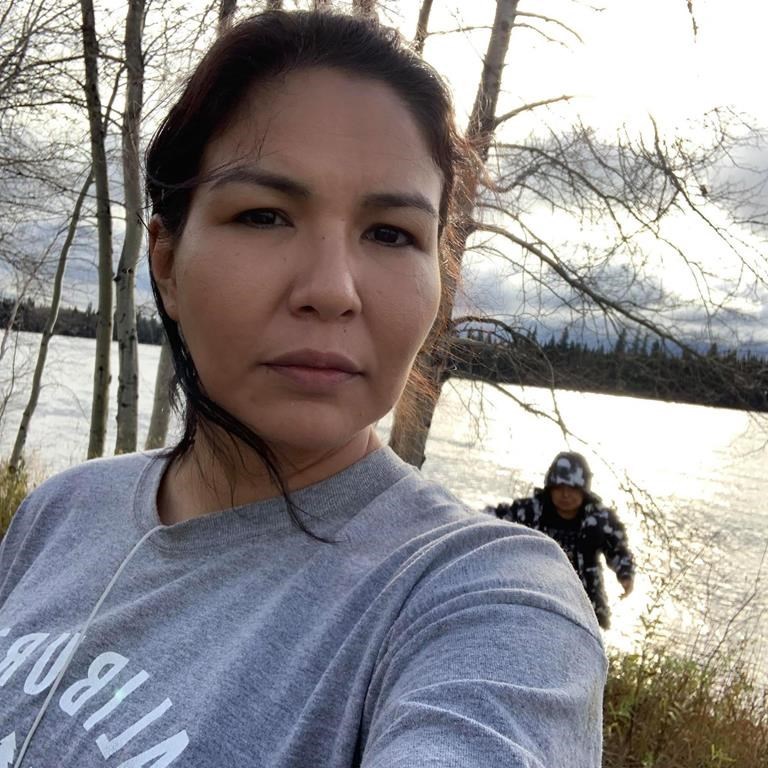Susanna Baxter says she has lived a life full of barriers.
Limited access to health care, poor education, trouble accessing clean drinking water and overcrowded housing are just some of the issues she says she experienced growing up in Marten Falls First Nation, a remote community in Ontario's Far North.
Amid those challenges, the 34-year-old says she also witnessed what she calls a lack of action from various governments.
"The only time we get some kind of help is when we call a state of emergency," she says. "We have to scream it from the freakin' rooftops before we get any kind of help."
As she looks to Ontario's election on June 2, Baxter hopes the new government will wholeheartedly support the residents of the Far North, a vast region that covers more than a third of the province's land mass.
"I would like to have us not be forgotten," says the single mother of three. "I feel like that's how I've felt my whole life and I don't want my children forgotten."
Baxter and other residents of the region say they'd like to see the Far North prioritized, with attention paid to the cost of living, food insecurity, limited health services and housing.
Groceries alone cost between $400 and $600 every two weeks for her family, says Baxter, which means she lives paycheque to paycheque as she works at the community's health centre.
"And the things that are sent up, sometimes they're not the freshest," she says.
If she or her children require dental care or have a health complication, Baxter says they're looking at a journey all the way to Geraldton, Ont., located more than 200 kilometres away.
Wayne Taipale, mayor of the town of Moosonee, located nearly 20 kilometres south of James Bay, says he feels the Far North has often been ignored.
He noted that the NDP legislator for the northern Mushkegowuk—James Bay riding made "quite a few" trips to the region over the last few years but he wants to see the other political parties take similar initiative.
"It just seems like the other … parties that are running, they forget that Ontario's further north than just North Bay and Sudbury," he says in an interview.
Lack of infrastructure in the region is largely to blame for the limited access to goods and services in the Far North, says Livio Di Matteo, an economics professor at Lakehead University and a senior fellow at the Fraser Institute.
"These are remote communities. You can't just drive there an hour or two down the 401. You often have to fly there in a very small aircraft," he says. "Even if you wanted to build houses, the winter is the time where you could actually use the seasonal roads to bring in the building materials."
Di Matteo says this makes it a "much more involved" and "expensive" process to provide the infrastructure for things like housing, amenities and high-speed internet to improve the standard of living in the region and make it attractive for health-care and education workers to go work there.
Bruce Achneepineskum, the chief of Marten Falls First Nation, says a lack of adequate accommodations for teachers has meant the children of his community have been out of school since September because there's no one physically present to teach them.
"This wouldn't be tolerated anyplace else in Canada," he says.
For years, the province has made promises to develop and mine the Ring of Fire, an area in the Far North that's located about 500 kilometres northeast of Thunder Bay and said to be rich in critical minerals. It has also touted the benefits of the all-season road that would be built for the project, which would improve access to goods and services in the Far North and connect communities in the region.
The Progressive Conservatives, who are seeking re-election, as well as the Liberals and the NDP have all made campaign promises to move ahead with the Ring of Fire project. But regardless of which party is elected, it's required to consult with the First Nations that would be affected by the project, including Webequie and Marten Falls.
The two First Nations announced in April that they were co-leading the planning of a Northern Road Link project, which the province has said is the final piece of critical road infrastructure for the Ring of Fire development.
Achneepineskum says he sees hope in the project, but he also wants it to be done right.
The chief notes that previous government policies, including the residential school system, have had "devastating consequences" for First Nations, with poverty, low education rates and high incarceration rates running rampant in those communities.
"It's a result of all these pieces of legislation that have alienated us from our lands and our resources," he says.
With the Ring of Fire development, Achneepineskum says his priority is ensuring the project involves First Nations throughout — from the planning stages to when revenue starts to flow in.
"(It's) our ancestral lands," he says. "We're looking to protect those lands and resources, with all aspects, be it environment, be it resource and revenue sharing, be it how environmental assessments are conducted, be it industry players and working with governments to ensure that we have greater prosperity for First Nations also."
Achneepineskum says he hopes First Nation communities and the new provincial government can work on building strong partnerships in the future.
"We hope to have more tables where we can have meaningful dialogue, partnership, not only consultation, but actual partnerships with government," he says.
Baxter's message to the political parties vying for public office is simple: "Keep us in mind. And not just when you're running."
This report by The Canadian Press was first published May 23, 2022.
———
This story was produced with the financial assistance of the Meta and Canadian Press News Fellowship.
Noushin Ziafati, The Canadian Press



